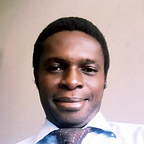Is Free Tertiary Education for Nigerians Possible?
In the words of Late Chief Obafemi Awolowo ‘..unless the brain of a man is developed by education (secular and religious), and his body by physical exercise, as well as by the nurture of good and adequate food, and by the comfort and self-respect of simple and neat clothing and shelter, man would be much more brutish and degraded than the lower animals.’
So which way, in light of the impending destruction of our educational system…or should I beckon, a metamorphosis into an institution meant only for the rich as demonstrated by the deliberate negligence of the public schools at the Tertiary Level?
Taking a cue from history, Africa, a significant civilization hub arguably gave birth to formal education. In the plight of new human challenges, and an an upsurge in the demand for improved and better organized fields of learning. the modern formal systems were born. The systems had to accommodate the teaming population, the need for better and more relevant solutions coupled with the accuracy required to detect raw human talents, and conversion to problem solving entities. Many regions of the world struggled with the inevitable, free education for their masses. Nigeria, having inherited this trend from the colonial era, was not left out in the pursuit.
Just like every other country that gave a pass mark to the policy, Nigeria was not exempted from the dividends of public and free education policies, witnessing several generations of people who would have been doomed to the cassava farmlands, the poultry farms, the mining sites, the construction sites, the quarries, the sugarcane plantations and the cotton fields, in short, subsistent life of survival and hardship and maybe abject irrecoverable poverty ; save for the timely impact of good and affordable formal education. Now, all that is changing.
With so much of insincerity and greed coupled with a lack of sound educational vision for the country as a whole, the echoes of free education for the masses now belongs to one place…the museum.
Examination malpractices, a monster in disguise, have taken away the pride of true triumphs at examinations away from scholars from the elementary levels to the ivory towers. Mis-appropriation of funds and other forms of corruption, another monster, has carted away our confidence in the public driven educational institutions. Poverty, the third and the meanest monster, has perpetually robbed the masses of discretion, resulting in a collective veil on our faces, towards the value of sound education at scale. So, is privatization of education at the expense of the public schools the solution?
While we look for viable answers, it is tragic to watch helplessly as the public schools suffer unjustly in the hands of wicked, shortsighted or completely misguided policy makers who continuously tender the excuse of insufficient fund as they save up their monthly salaries (and allowances) till the ‘savings’ were big enough to send their own children abroad.
The missionaries came with good news which included the promotion of cheap education for the less privileged. Some of these schools were taken over by the government, while, with great intents and purposes, some elites identified business opportunities inherent in investing in public education. The experiments began with the private nursery and primary schools. It worked. Then there was a proliferation of private secondary schools. This was an assumed plus to the Nigerian educational system as they helped reduce the pressure on the public infrastructure, aside from serving as vanguards for the entire educational standards. However, the loud unheard screams of foul play began when with public schools; the story of goodwill and progress became that of neglect and deterioration. And there arises another question: who carries the blame?
Now we have private tertiary institutions. However excellent, most of them are expensive, untested and full of futuristic promises. And the universities being the highest citadels of learning will always require seasoned academics who maintain high standards and reserve the ethics of impacting high level professionalism into their students. It is equally obvious to all that the quantity of such dignified professionals is in gradual diminution. Without a college degree in mathematics, the inference that the private universities, with their marketing ‘prowess and aggressiveness’ will parade the best in terms of good and qualitative manpower is not hard to establish with time.
This is certainly not a spiteful jab against private tertiary institutions, neither is it intended a ”political‘‘ campaign for the position of the next minister of education. It is a clamor for attention in the direction of a looming catastrophe, a sharp educational imbalance that may no longer sustain the rickety structure that makes Nigeria progressive, peaceful and united. Education remains the bedrock of a nation and it is still true that good and intelligent governance is traceable to the concentration of the literate fragments of the society.
If we dream of an intelligent society, a teachable, strong and progressive state, an eldorado of right and informed actions and perspectives, then we must think of sacrifices to make that will give the masses cheap, accessible and quality formal education.
Free education is possible in Nigeria.
